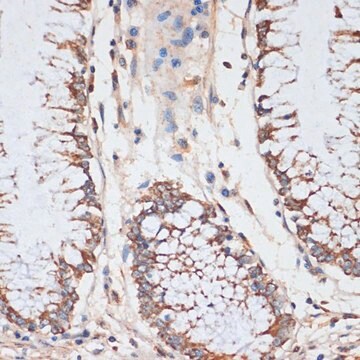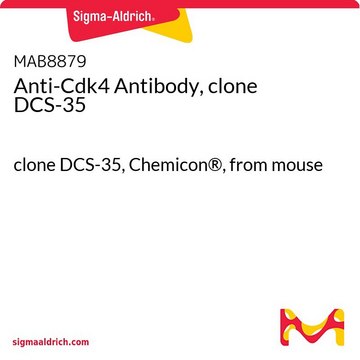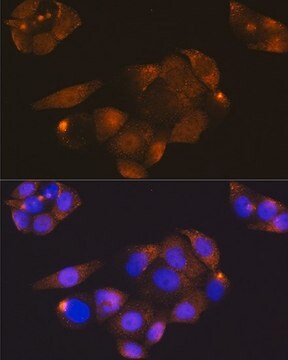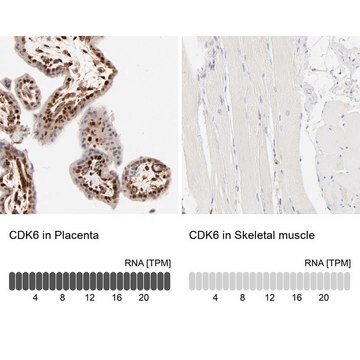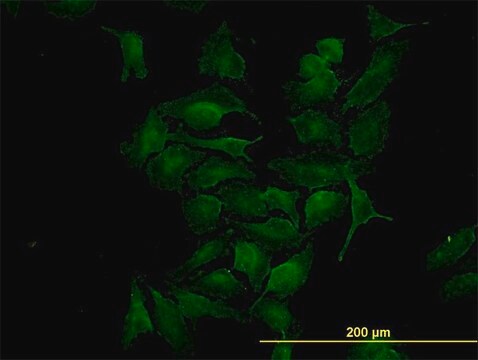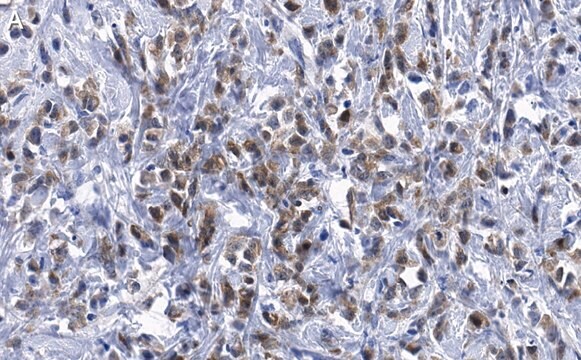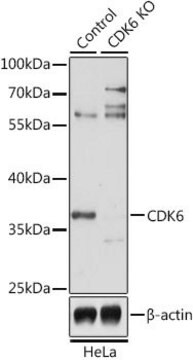C8218
Monoclonal Anti-Cdk4 antibody produced in mouse
clone DCS-31, ascites fluid
About This Item
Produits recommandés
Source biologique
mouse
Niveau de qualité
Conjugué
unconjugated
Forme d'anticorps
ascites fluid
Type de produit anticorps
primary antibodies
Clone
DCS-31, monoclonal
Poids mol.
antigen 33 kDa
Contient
15 mM sodium azide
Espèces réactives
rat, mouse, human
Technique(s)
immunocytochemistry: suitable
immunoprecipitation (IP): suitable
microarray: suitable
western blot: 1:1,000 using a cultured human tumor cell line extract
Isotype
IgG2a
Numéro d'accès UniProt
Conditions d'expédition
dry ice
Température de stockage
−20°C
Modification post-traductionnelle de la cible
unmodified
Informations sur le gène
human ... CDK4(1019)
mouse ... Cdk4(12567)
rat ... Cdk4(94201)
Catégories apparentées
Description générale
Spécificité
Immunogène
Application
- immunoprecipitation of human melanoma cell line.
- immunofluorescence of fibrosarcoma cells.
- western blot analysis
- immunofluorescence
- immunohistochemistry
Actions biochimiques/physiologiques
Clause de non-responsabilité
Vous ne trouvez pas le bon produit ?
Essayez notre Outil de sélection de produits.
En option
Code de la classe de stockage
10 - Combustible liquids
Classe de danger pour l'eau (WGK)
WGK 3
Point d'éclair (°F)
Not applicable
Point d'éclair (°C)
Not applicable
Faites votre choix parmi les versions les plus récentes :
Déjà en possession de ce produit ?
Retrouvez la documentation relative aux produits que vous avez récemment achetés dans la Bibliothèque de documents.
Articles
Quantitative and qualitative western blotting to validate knockdown by esiRNA. Sigma-Aldrich.com
Notre équipe de scientifiques dispose d'une expérience dans tous les secteurs de la recherche, notamment en sciences de la vie, science des matériaux, synthèse chimique, chromatographie, analyse et dans de nombreux autres domaines..
Contacter notre Service technique